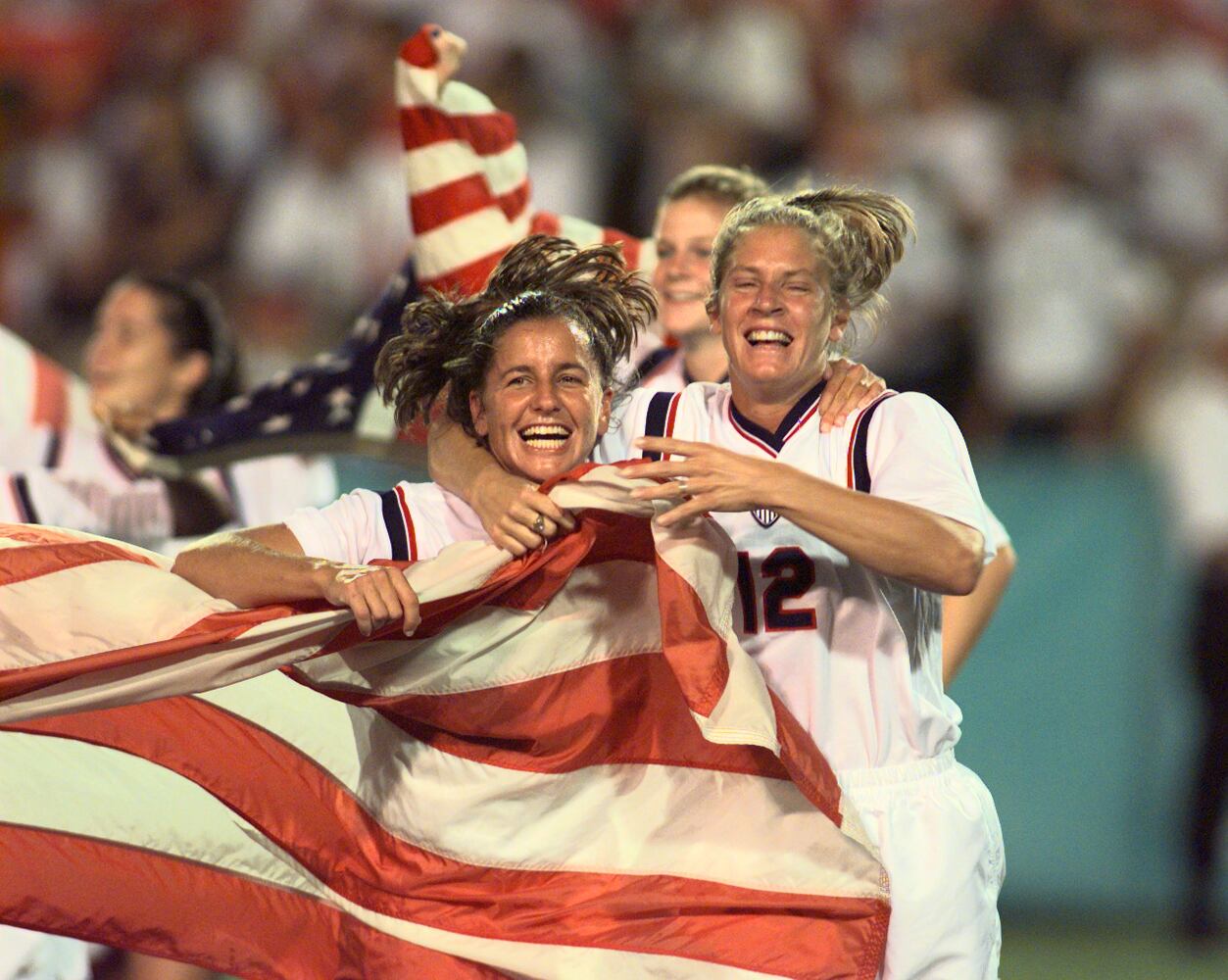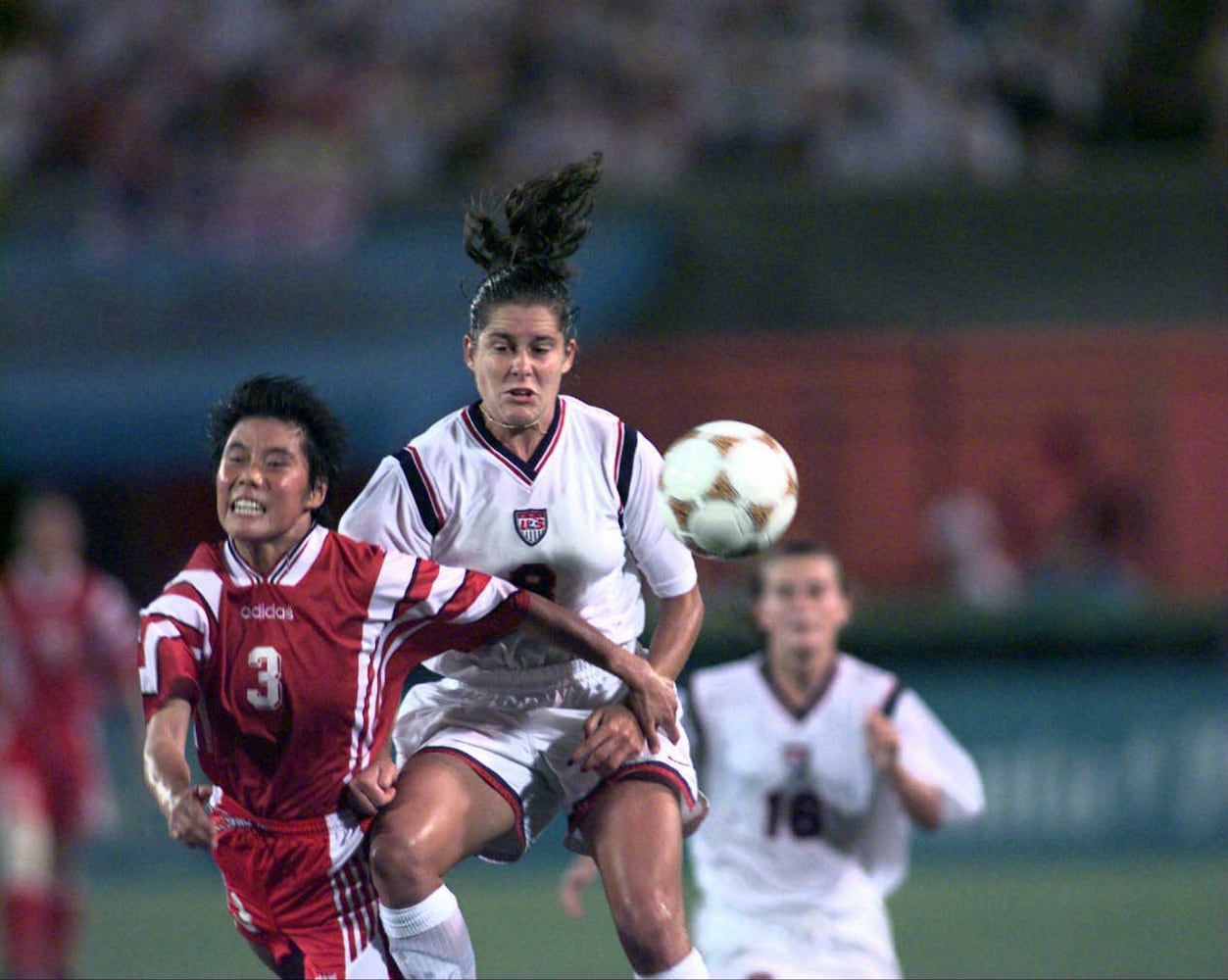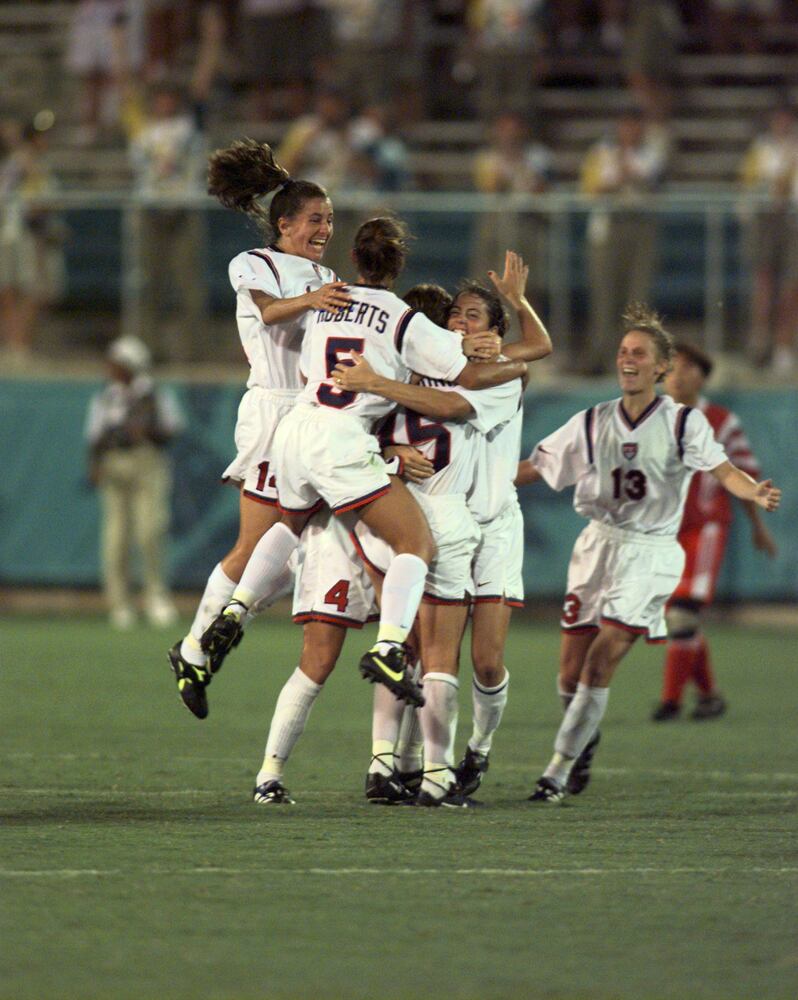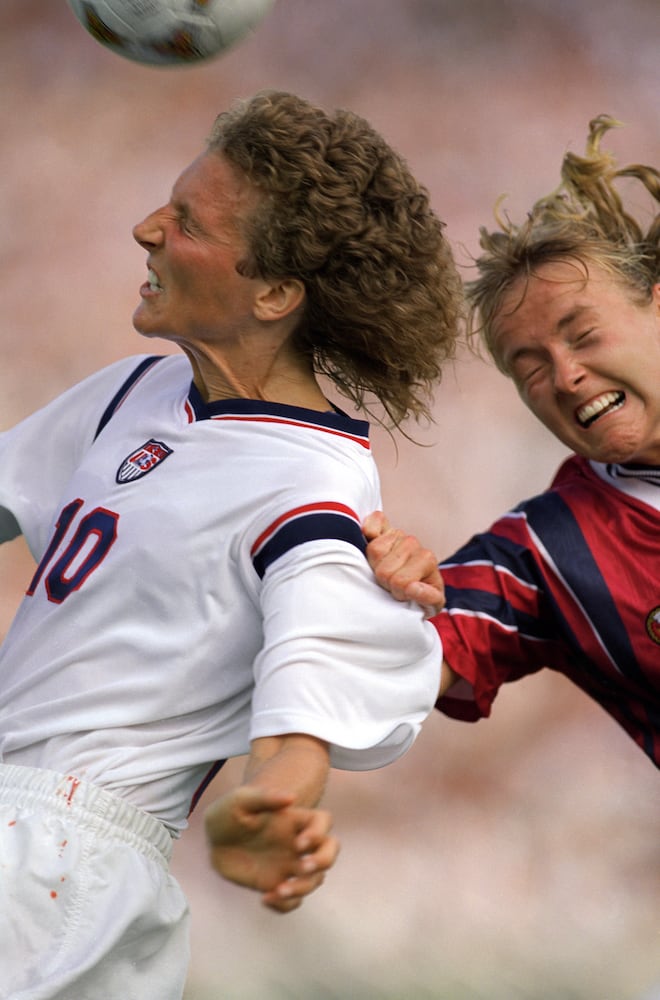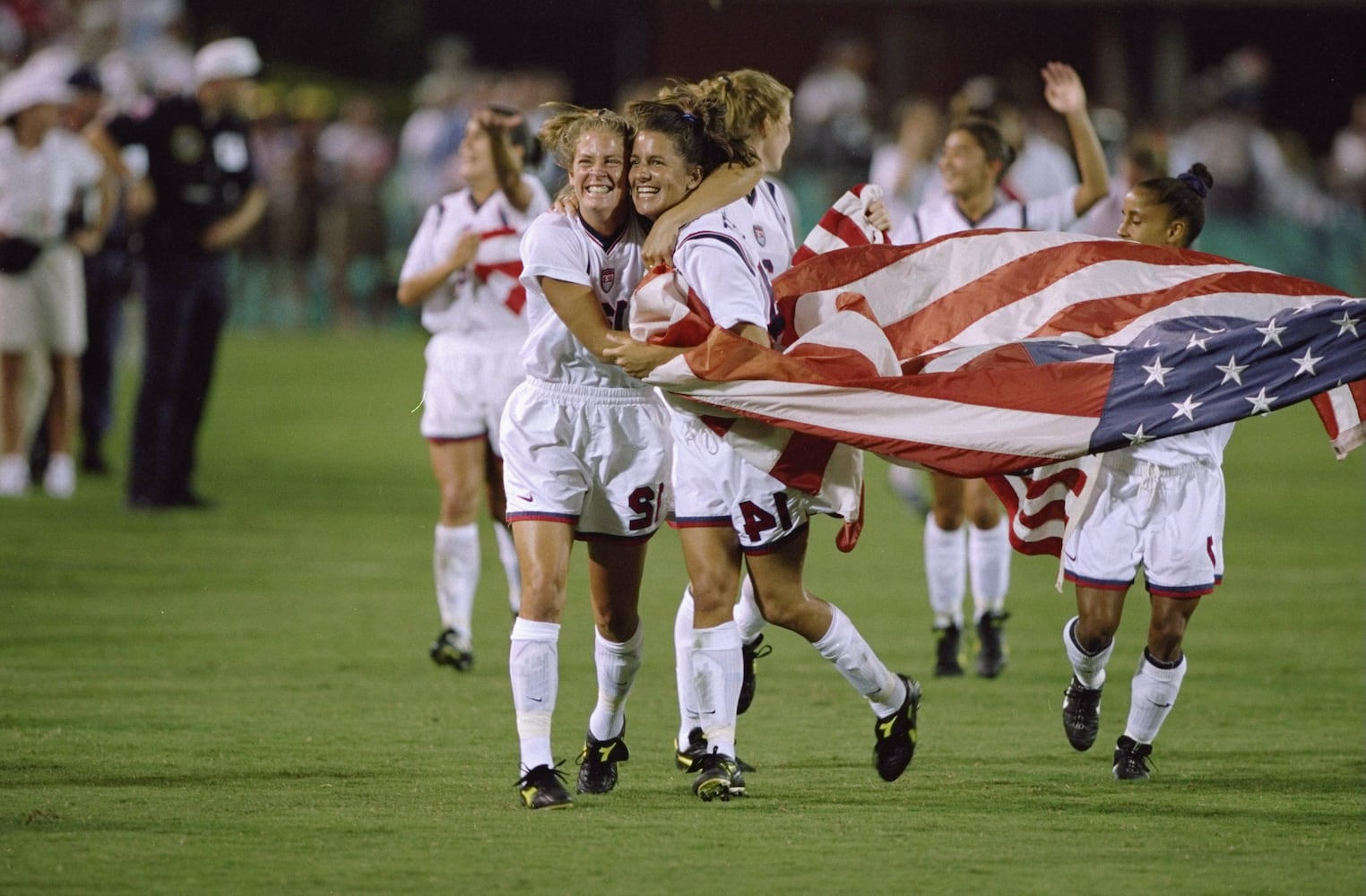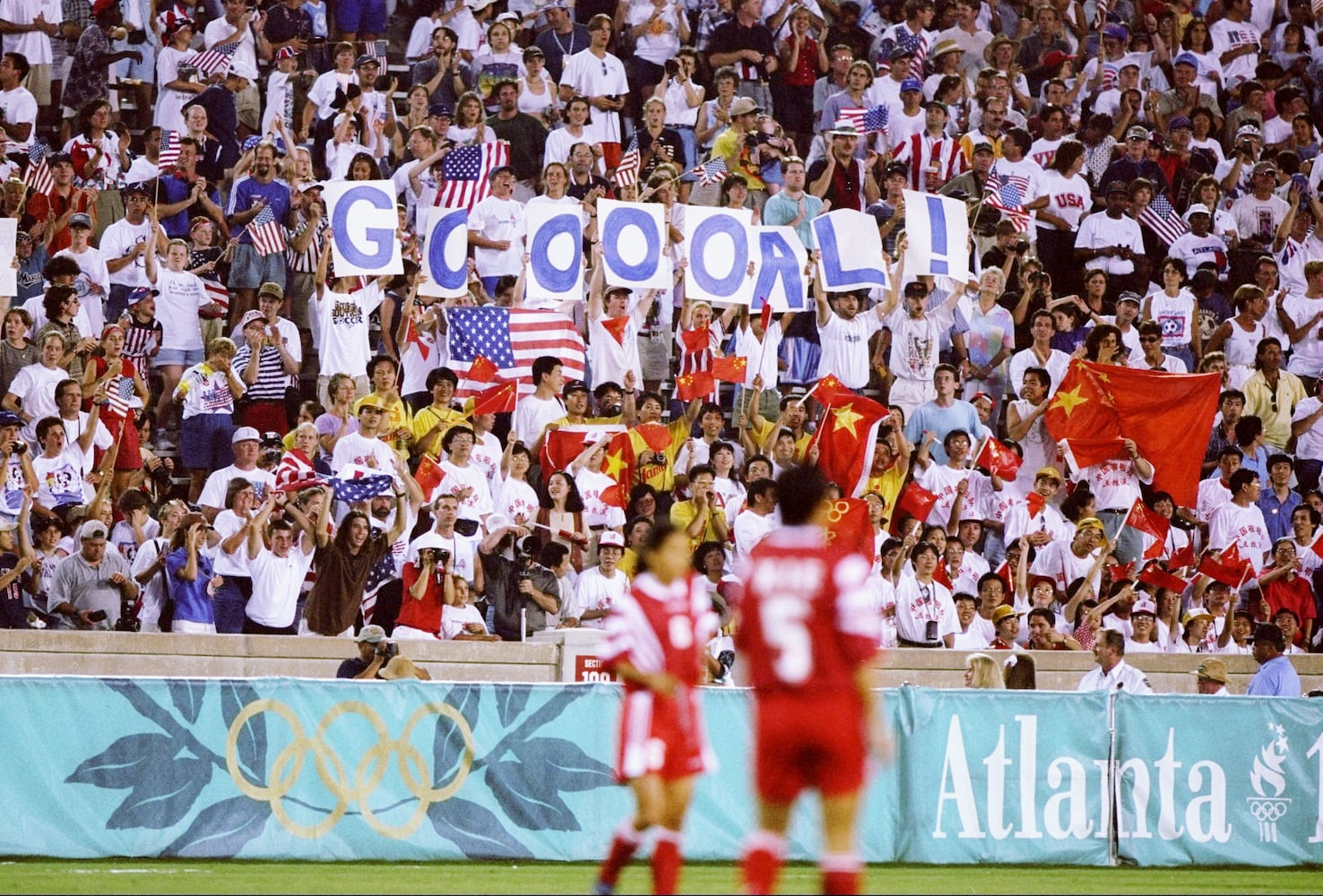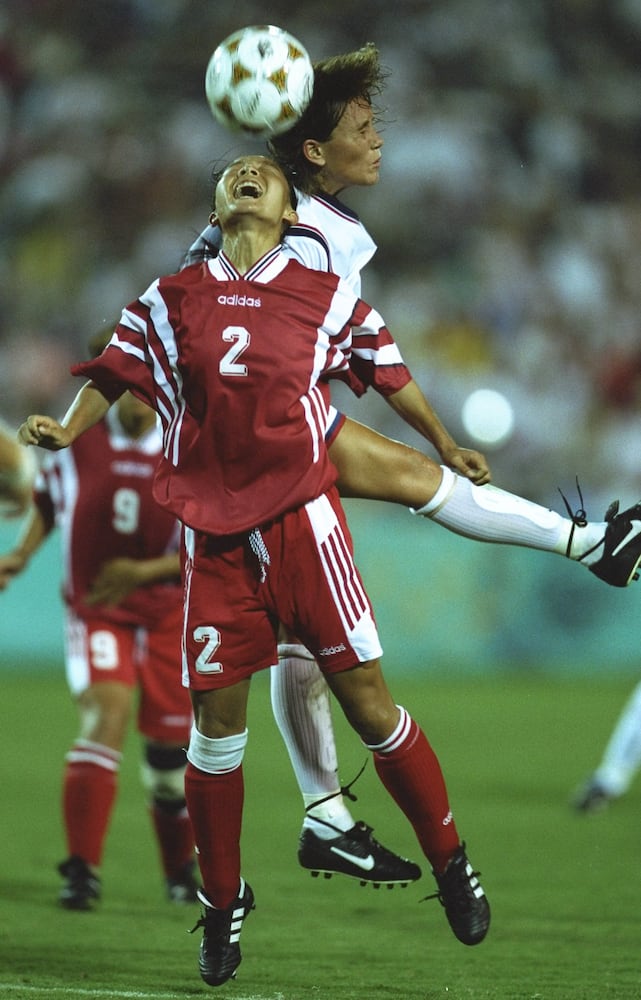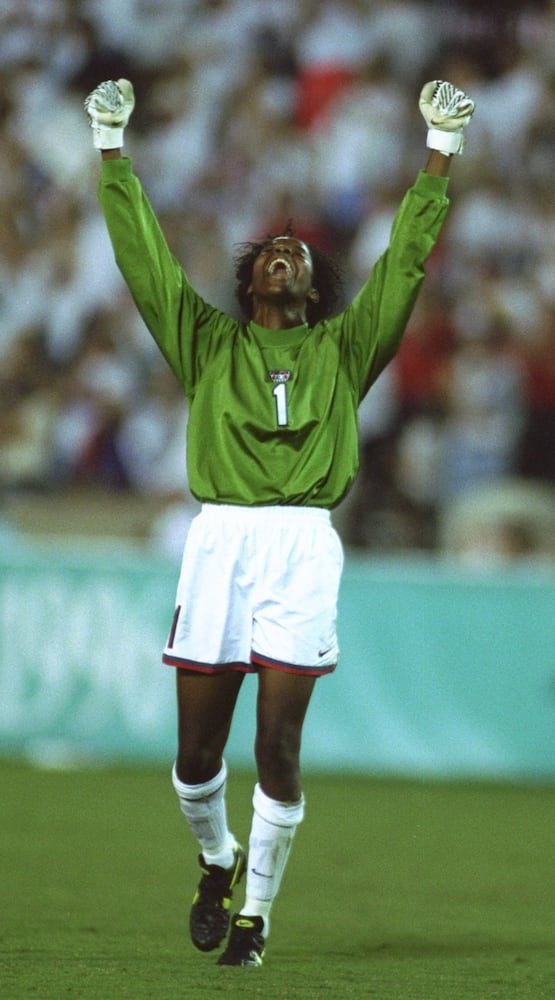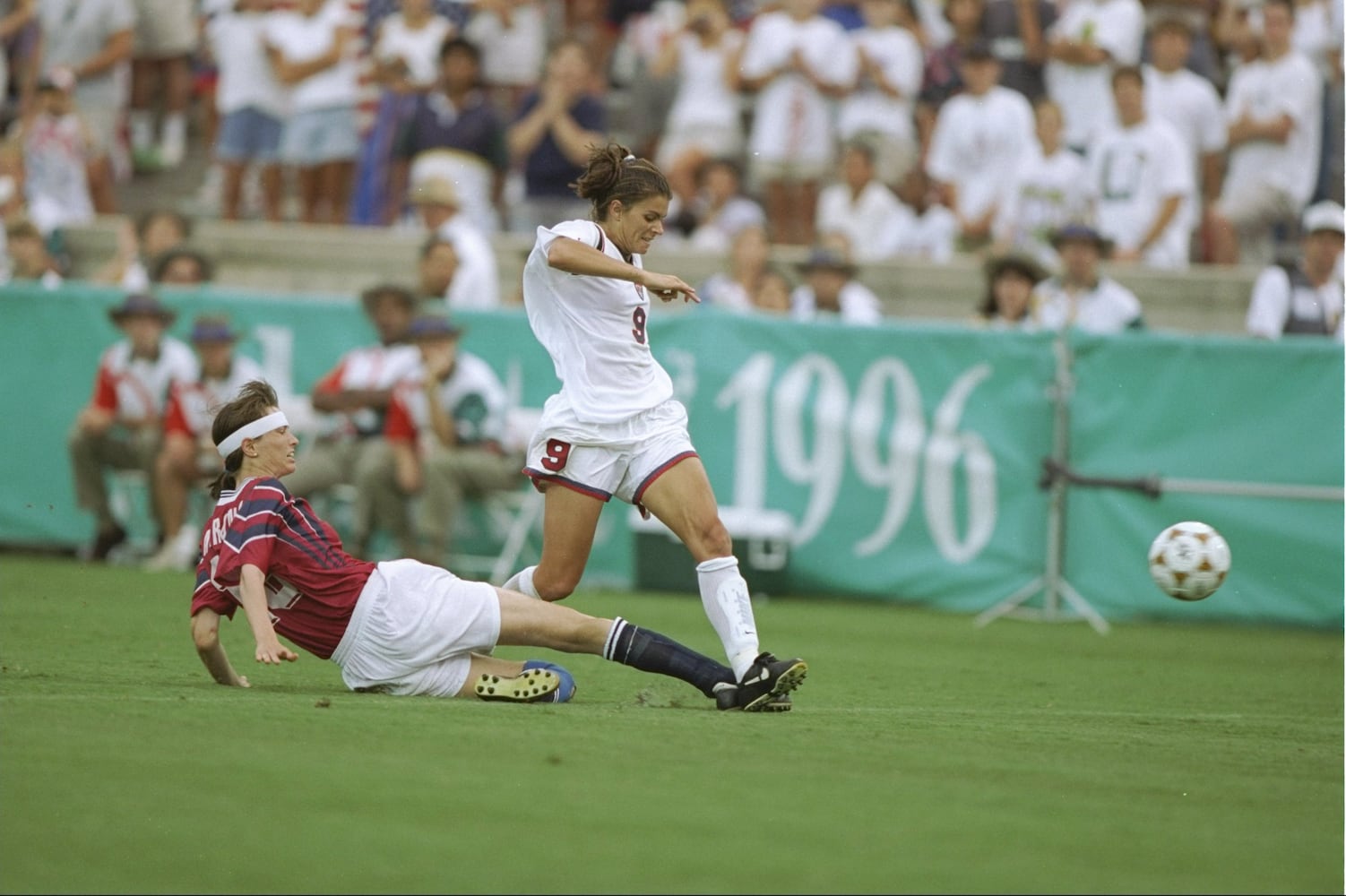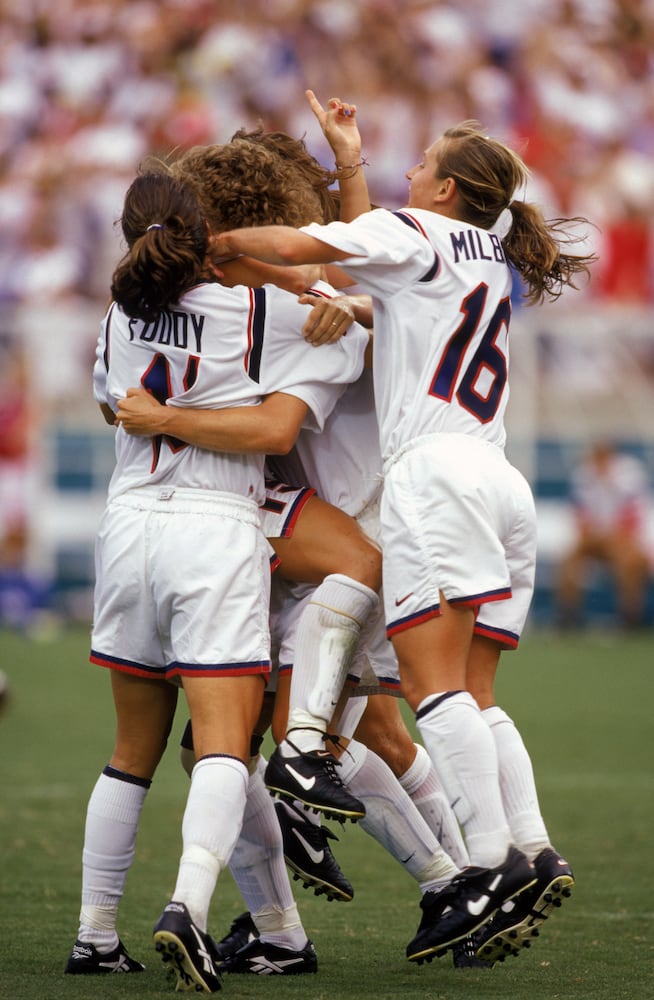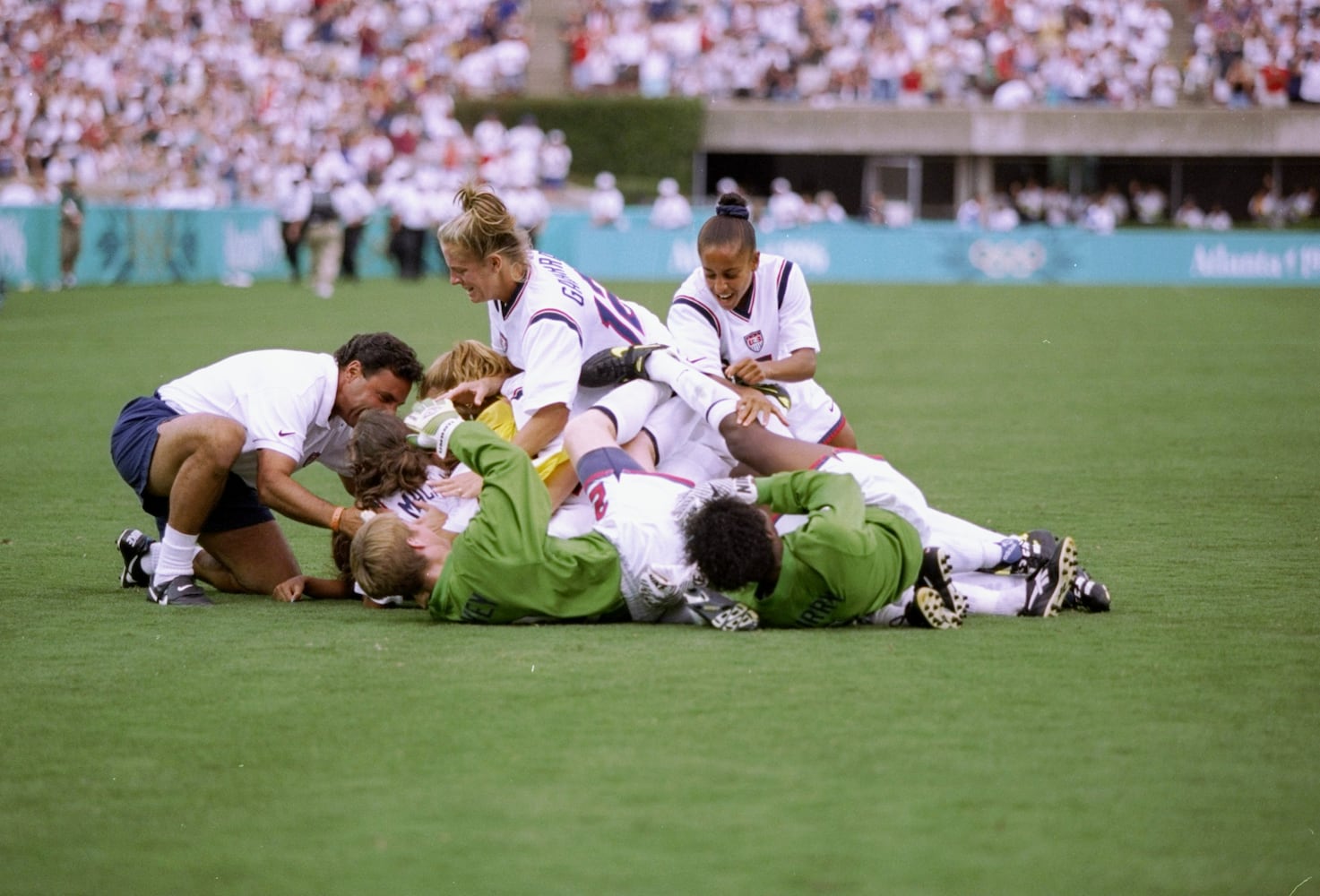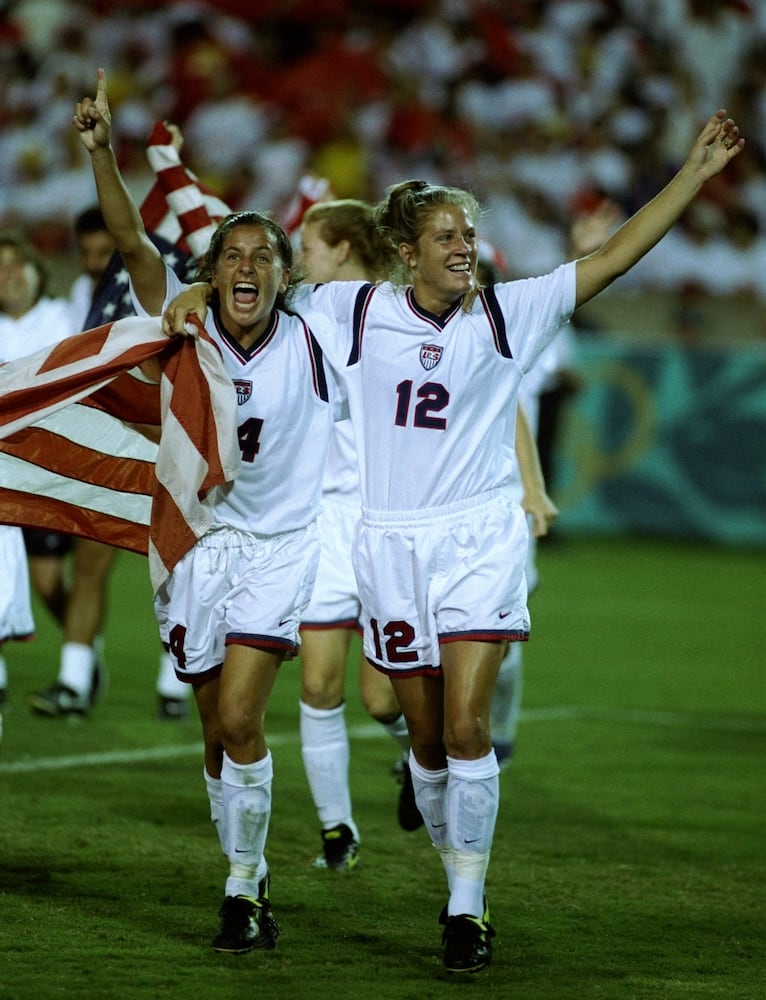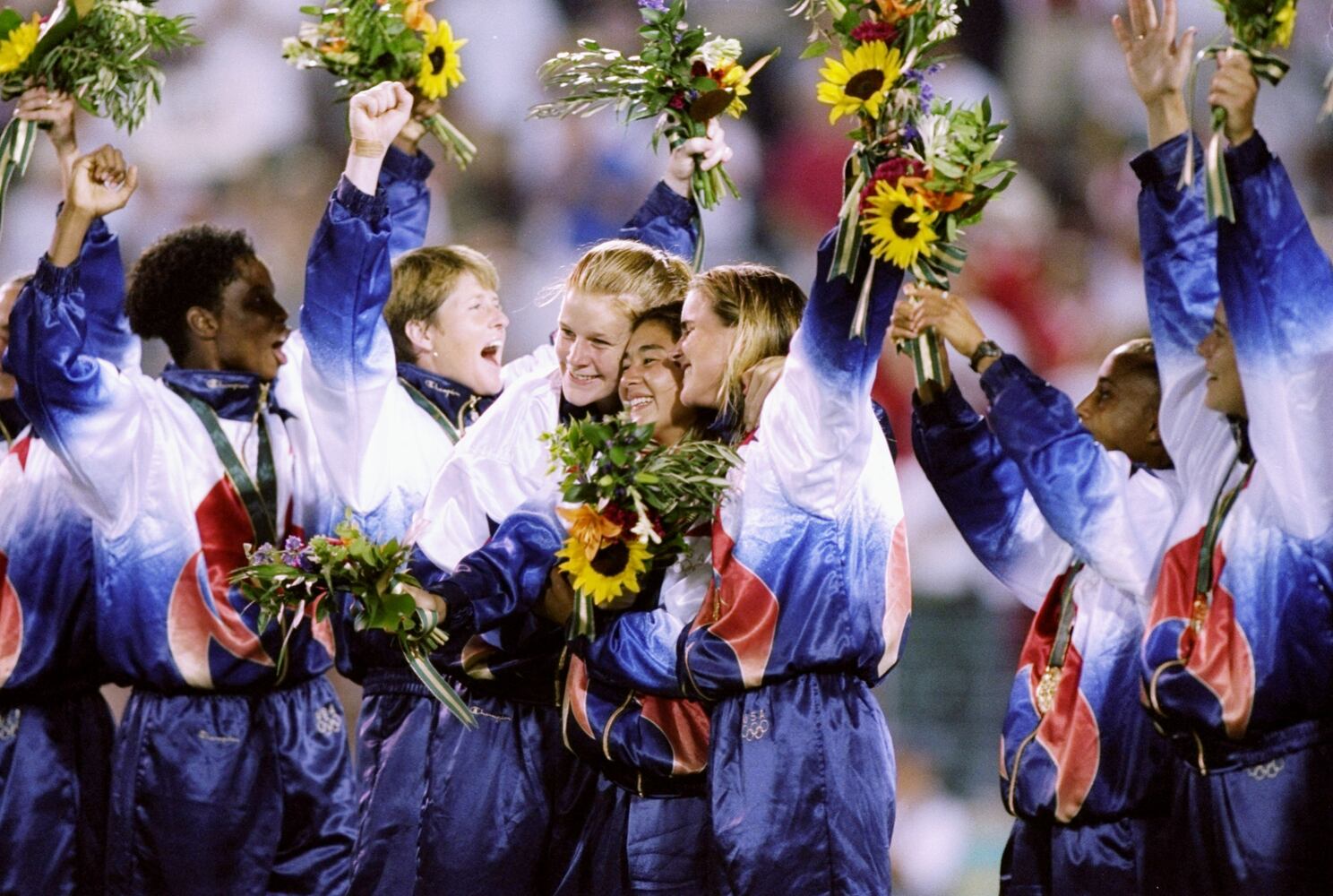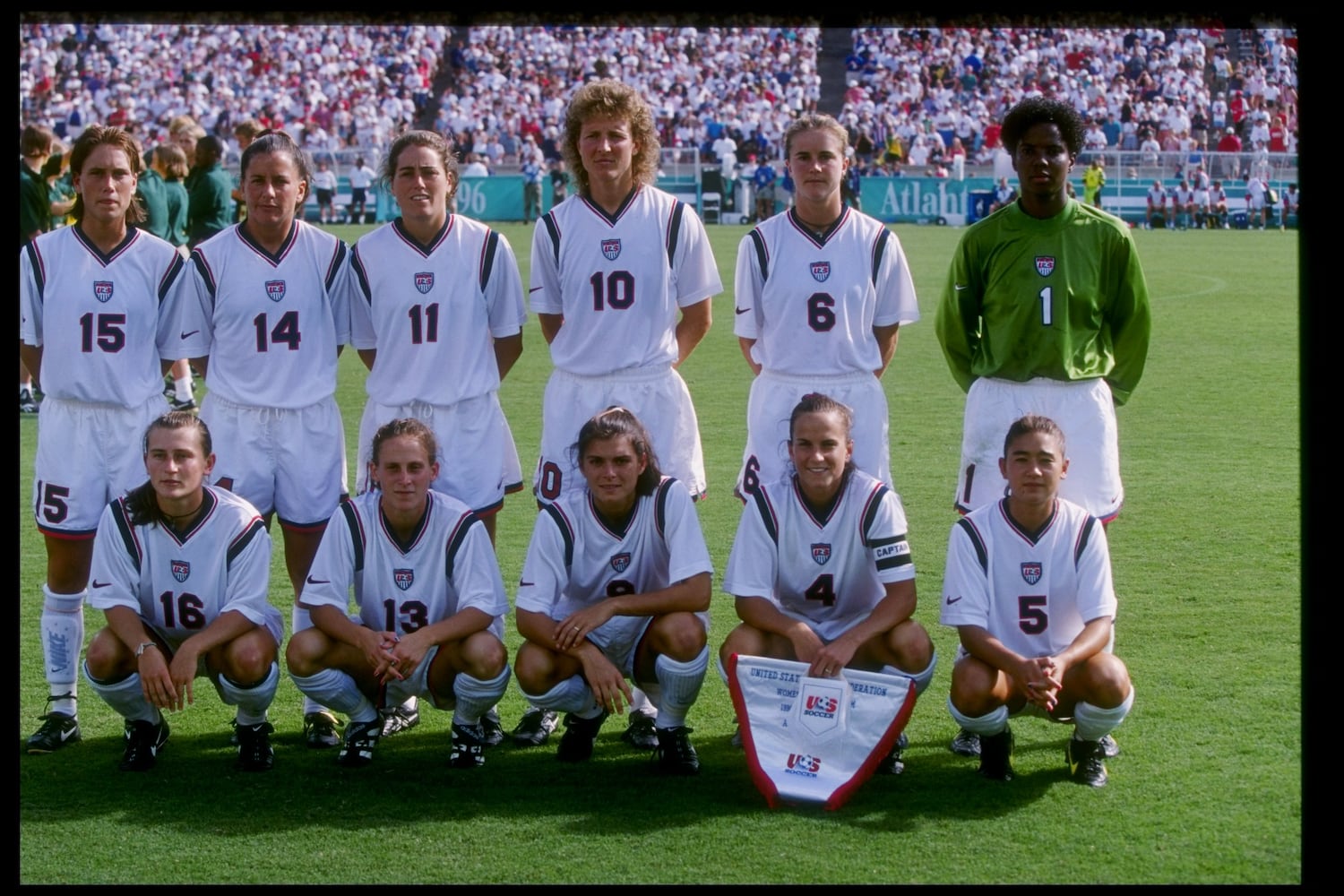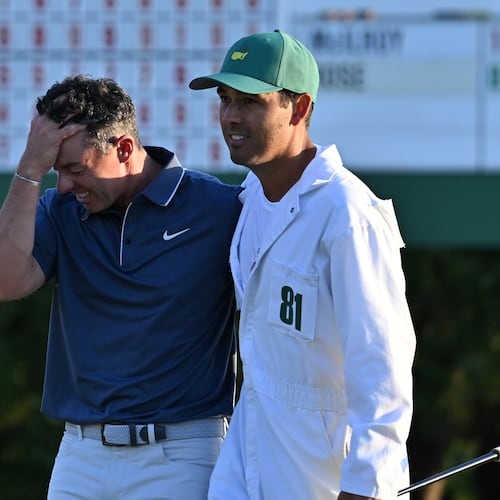In July and August 1996, the world sent its finest athletes to Atlanta. Some athletes came as familiar names from familiar nations. Others had toiled in obscurity. Each came proudly to Atlanta, and Atlanta received them in the same manner. To commemorate the 20th anniversary of those Summer Games, the AJC offers 20 memorable athletes and performances.
The 10th in the series: The U.S. women’s soccer team won the gold medal in Sanford Stadium.
She scored the golden goal to defeat Norway in the semifinals, and then scored the first goal in the gold-medal game won by the U.S. in 1996 in Athens, but Shannon MacMillan’s accomplishments as Olympic hero don’t impress her 7-year-old son, Brayden.
She recently took him to a game between the U.S. women’s team and Ireland near her home in San Diego. Fans started to recognize her.
Brayden asked her, “Mommy, why is everyone ask for your photo, why are you signing the shirts?”
She said, “you see those girls out there? Mommy used to do that.”
His response: “Can I have some pizza?”
While Brayden may not be amazed, that gold-medal game won by the U.S. 2-1, featuring goals by MacMillan and Tiffeny Milbrett over China had a lasting impact for many reasons.
U.S. coach Tony DiCicco said not only does he think it was the best-played women’s game ever, which set an expectation for fans and viewers, but he thinks that the record attendance (76,481) for the game, combined with NBC’s decision to not televise it, changed the attitudes of networks toward televising women’s soccer.
DiCicco was feeling pressure as the manager of the team. After taking over the 1991 World Cup-winning team from Anson Dorrance in 1994, DiCicco couldn’t match his predecessor’s feat in 1995. The U.S. finished with bronze.
Add to that this would be the first Olympics to feature women’s soccer, and that it was being played in the U.S., and expectations — but obviously not the TV ratings — were high.
“Taking over for Anson and being world champions and not being able to keep our status was a blow to all of us, certainly to me,” he said.
A broken foot kept MacMillan off the team that lost to Norway 1-0 in the semifinals of the 1995 World Cup. Having missed that, and wanting to compete in the Olympics in any capacity since she was young, pushed MacMillan.
She didn’t make the initial 24-player roster. She fought her onto the team through training, and then onto the team.
The U.S. earned seven points in its first three group games, defeating Denmark 3-0, Sweden 2-1 and tying China 0-0.
Because it was the sport’s first time in the Olympics and there wasn’t time to host a qualifying tournament, the Olympics field featured just eight teams, with four advancing to the knockout stage: winner advances, losers fly home.
The U.S. faced Norway — the same team that defeated it in the semifinals of the World Cup — in its first knockout game.
Norway grabbed a 1-0 lead in the 18th minute, but Michelle Akers, who lives in Cobb County, tied the score on a penalty kick in the 76th minute.
During the knockout stages of the Olympics, games that were tied after regulation went into extra time. The team that scored first won, so shots that hit found the back of the net were referred to as “Golden Goals.”
MacMillan started on the bench, coming in for Milbrett in the 96th minute. MacMillan struck in the 100th minute, sending the U.S. into the gold-medal game against China, which defeated Brazil 3-2 in the other semifinal.
No NBC — No Bloody Coverage — and camera phones not yet a commodity means that the goal can’t be found on the internet. DiCicco eventually worked for NBC in 2000.
“I think they knew they made a mistake in 1996,” he said.
The gold-medal game fit the name metaphorically and competitively.
“I think it definitely set the bar,” MacMillan said.
The technical ability of the players was so high that DiCicco and MacMillan said there were few unforced errors. So, when either team got the ball, the other had difficulty regaining possession. DiCicco noted that, as a coach watching the game and trying to think of what’s next, the players were always in step with his thoughts before he communicated them.
The U.S. struck first and it was MacMillan, again, finding the net.
A shot by Mia Hamm ricocheted off the gloves of the Chinese goalkeeper, hit the post and bounced to MacMillan, who pounced. MacMillan said she was simply trying to crash the penalty box in case something happened. Her intuition proved correct.
“I just jumped on it and buried it with my left foot,” she said.
China bounced back to tie the score and controlled most of the match until Milbrett touched in a pass from Joy Fawcett with 22 minutes remaining.
The impact was personal and professional.
DiCicco described it as a relief after the failure the year before.
“Playing the way we did in 1996 was great relief and very rewarding,” he said.
MacMillan said, “it was an amazing moment to even be there and be a part of it.”
MacMillan kept her gold medal in a safety-deposit box for a long time. But she eventually reasoned that it can’t inspire others if it can’t be seen. So, she takes it with her to speaking engagements — such as at her son’s school — and other events as a method to help children dream, just like she did.
It just may not impress her son. At least, not yet.
About the Author
Keep Reading
The Latest
Featured
